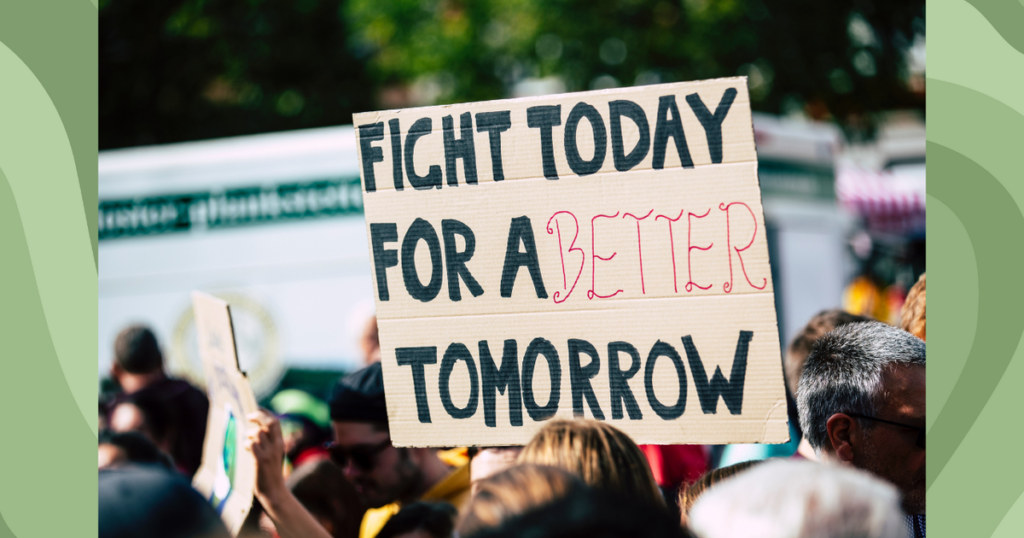How is climate change creating a new Wave for Refugees?

[ad_1]
This article is written by a student writer from the Her Campus at Casper Libero chapter.
Even though climate and temperature changes are long-term, they are being intensified by human actions. This is a reality that has been perpetuated for years.
It may sound like a fictional script, but devastating climate impacts could become more and more frequent, the report of the Intergovernmental Panel on Climate Change warns. Human actions such as deforestation, excessive pollution, misuse of land, burning of fossil fuels, and incorrect disposal of waste contribute to the acceleration of the greenhouse effect.
Among the countries that generate greenhouse gasses (GHG), Brazil is one of the world leaders in emitting these gasses.
The logic is simple: the more disasters generated by this climate crisis, the more refugees we will have. As more people become vulnerable to increasingly frequent and intense situations, resolving this crisis becomes more difficult.
Data from UNHCR (United Nations High Commissioner for Refugees) shows that refugees are on the front line of this climate crisis that has been increasing over the years. These refugees often have no option but to live in overcrowded or informal housing with little or no sufficient infrastructure, therefore, becoming more vulnerable to new climate risks such as flooding, drought, and heat waves. Climate change is fully associated with the displacement of these people and this factor is crucial to understanding the concept of this “New Wave” for refugees worldwide. A forced displacement that intensifies a humanitarian crisis that extends to tensions related to hunger, poverty, and the dispute over natural resources.
The conversation surrounding climate change is familiar. A clear example is the recent tragedy in Rio Grande do Sul (RS), a state in southern Brazil.
A historic milestone for the Rio Grande do Sul region occurred when, in between rains and flooding, within a matter of weeks, rains and flooding destroyed cities and the lives of many residents. The impacts of this historic tragedy are a consequence of the increase in the planet’s temperature. Excessive waves of cold, heat, rain, and periods of drought have led to what we today call a ‘New War’ for refugees. Those who lost their homes and families are seeking new homes, and places to rebuild their lives.
To help those affected by the tragedy, TikTok influencers created The “Brazil Makeup” campaign led by the Brazil influencer Camila Pudim, which appealed to those affected by the floods in RS, to represent Brazilian culture, and join donation campaigns for the state. “We are a unique people, we are the same family” is the message behind this trend thay has gone viral in recent days in support of donations to families in Rio Grande do Sul.
The podcast channel PodPah, created by Lucas Silveira, is another great example of how people are coming together to help others. Through a charity livestream, the hosts invited many Brazilian artists to take action to help the victims of RS, such as Ludmilla, Sandy, Emicida, Seu Jorge, Whindersson Nunes, and Felipe Neto, among others. In the end, the channel raised more than two million reais in total donations.
Moving from your home country due to wave scenarios as mentioned above or climate disasters is a desperate situation. This “New Wave” of refugees is a scenario that tends to grow from now on because of the excessive climate changes that the world has been suffering. Times, when temperatures were colder, are now hot, rainy times turn to drought, and vice versa.
The planet is getting hotter and this is a reality that has been warned about for some time, but it is only after tragedies like the one mentioned in Rio Grande do Sul that society realizes the seriousness of the situation. An increase of 1.2 degrees Celsius in the planet’s average temperature compared to the average of the last 60 years is an alarming situation that has the consequences of what society is witnessing today: more and more natural catastrophes. And, in the future, the non-existence of human and animal life on Earth.
For the so-called “climate migrants”, this scenario spreads to the most varied aspects. It is not necessary to go far to realize that they depend on humanitarian assistance and in the midst of this crisis they are placed aside from social issues.
———————–
The article above was edited by Giulia De Demo Assis.
Liked this type of content? Check Her Campus Cásper Líbero home page for more!
[ad_2]




